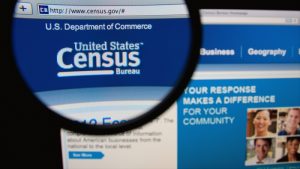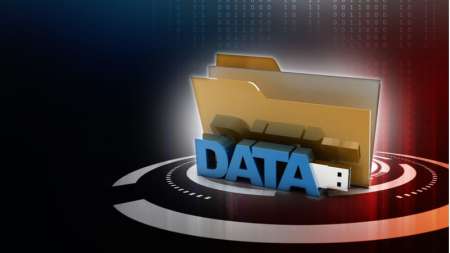According to research from MeriTalk and AP-NORC, just 15 percent of American adults trust the Federal government to do what is right for them and their families all or most of the time. How can our governments at the Federal, state, and local levels regain the public’s confidence by delivering on the promises of major infrastructure programs? […]
The creation of a new police misconduct database, and a further evaluation of the use of facial recognition technologies in law enforcement, are among several foundational elements in President Biden’s executive order on policing issued today on the second anniversary of the killing of George Floyd while in the custody of Minneapolis police officers. […]
While concern in some quarters of the tech world continues to grow about how to keep pace with growing data storage demand, the Government Accountability Office (GAO) concluded in a new report that exotic alternatives – think options like synthetic DNA – to fill the gap are probably still years away. […]
Recently MeriTalk sat down with Monzy Merza, vice president of cybersecurity go-to-market at Databricks, a data and artificial intelligence (AI) company that offers the first and only lakehouse platform in the cloud. Merza chatted about the implications and opportunities with M-21-31 and offered insights for successfully meeting its mandates. […]
The U.S. Customs and Border Protection (CBP) agency should look to improve how it has been categorizing drug seizure data and evaluating training, the Government Accountability Office (GAO) wrote in a new report. […]
As the Federal government and Department of Defense look to find creative solutions to problems, creators will need to emphasize getting accurate nonbiased data and understanding the user experience (UX) of their product if they look to create something that is both useful and used, the Chief Data Officer for United States Special Operations Command (SOCOM) said. […]
The United States military is developing a new Global Position System (GPS) signal resistant to interference, such as jamming. The Department of Defense (DoD) plans to install this technology on hundreds of weapons systems, but a recent report from the Government Accountability Office (GAO) found that incomplete data hinders deployment efforts. […]
The Department of Health and Human Services (HHS) announced it launched a new $90 million initiative to improve data collection for health centers to reduce health disparities. The initiative will utilize the remaining American Rescue Plan Act (ARPA) funds. […]
The Department of State is looking to hire up to about 50 data scientists to work in different agency offices and portfolios, as well as support data-driven diplomacy. […]
The U.S. Customs and Border Patrol (CBP) organization has not collected or recorded complete data for its Missing Migrant Program, and lacks a plan to evaluate the program’s ongoing development, according to a recent report from the Government Accountability Office (GAO). CBP is a component agency of the Department of Homeland Security (DHS). […]
The ever-growing influx of data collected from thousands of sensors means that the U.S. Army needs more help than ever in sorting through that sea of information, and creating a robust data fabric to help with that task is essential, leaders from the service branch said this week. […]
The Department of Labor’s (DOL) Bureau of Labor Statistics (BLS) is seeking information and sources for a Virtual Data Enclave (VDE) for managing data in a protected environment with a tool to share restricted microdata with researchers authorized to access the data. […]
Secretary of Defense Lloyd Austin has announced the appointment of Air Force Lt. Gen. Mary O’Brien to be the next Chief Information Officer (CIO) for the J-6 Joint Staff and director for the J-6 command, control, communications, and computers/cyber, according to an April 5 Department of Defense (DoD) release. […]
The Federal Deposit Insurance Corporation (FDIC) has named Geoffrey Nieboer as the agency’s Chief Data Officer (CDO), and moved Brian Whittaker to the role of Acting Chief Innovation Officer, according to the agency’s organization directory. […]
The organizers of World Backup Day – the annual March 31 call for all to back up their data in order to preserve those precious assets and create the ability to recover them in the event of theft or loss – claimed victory this week in its effort to spread the word about the importance of backups and implementing strategies for continuous backups going forward. […]
The National Institutes of Health (NIH) is looking to improve its data management and sharing challenges with the new NIH Policy on Data Management and Sharing that will become effective on Jan. 25, 2023. […]
The U.S. Navy’s Chief Data Officer (CDO) said the service branch is embarking on a data infrastructure transformation to tackle a two-pronged challenge: first, how to deal with the sheer amount of data collected, and second, understanding if the Navy has the correct kinds of data to help leaders make decisions. […]
The Department of Veterans Affairs (VA) Office of the Inspector General (OIG) released a trio of reports today that found continued deficiencies with the VA’s Electronic Health Record (EHR) transition that has led to patient care issues in multiple areas. […]
The Government Accountability Office (GAO) said in its latest report on the 2020 Census that the Census Bureau needs to do more work identifying specific dates and key activities going forward to protect respondent privacy in its future efforts. […]
Carlene Ileto, deputy chief data officer at the Department of Homeland Security (DHS), explained the agency’s data strategy and data governance approaches at a Feb. 23 virtual event organized by FCW, and emphasized how DHS is aiming to use data for making evidence-based decisions. […]
The Department of Energy’s (DoE) National Nuclear Security Administration (NNSA) has made progress in implementing a common financial reporting system, but the agency needs to make further improvements to make program costs more transparent, the Government Accountability Office (GAO) said. […]
The Government Accountability Office (GAO) in a new report said the Defense Department (DoD) needs to improve stakeholder input and data gathering practices to better meet its obligations for reporting on national security topics to Congress. […]
The Department of Housing and Urban Development (HUD) has been using funds from the Community Development Block Grant Disaster Recovery (CDBG-DR) fund since 1993, but according to a new report from the Government Accountability Office (GAO), the agency could generate better data to deliver those funds to vulnerable populations in an equitable fashion. […]
With the Biden Administration preparing to release an updated National Defense Strategy (NDS) early this year, former Department of Defense officials stressed that sharing data and technology with allies more easily should be a key part of the next NDS. […]
The year 2021 has played out as a non-stop whirlwind of activity for the Federal IT community – one unprecedented in recent memory for new policy direction, funding pushes, and urgency to improve network security. […]
The Department of the Navy has a good sense of how data is generated on the mission side, but struggles to analyze that data and decide appropriate uses for it, according to the Navy’s Chief Data Officer (CDO) Tom Sasala. […]
The Department of Energy (DoE) has awarded Verizon two digital communications modernization contracts totaling $34.6 million, utilizing the General Service Administration’s Enterprise Infrastructure Solutions (EIS) contract vehicle, the telecommunications company announced Dec. 1. […]
The Department of Energy (DoE) could improve how it manages its fraud, waste, and abuse practices by improving access to the data used by the agency and its contractors for data analysis, as well as using all tools available to keep the department’s research secure, according to a Nov. 26 DoE Office of the Inspector General (OIG) report. […]
The Department of Housing and Urban Development (HUD) can do a better job at estimating the level of homelessness in U.S. communities by better leveraging data, a new Government Accountability Office (GAO) report has found. […]
The United States Postal Regulatory Commission is working to hire its first-ever chief data officer (CDO) and establish a Data Governance Board, Michael Kubayanda, nominee for commissioner at the Postal Regulatory Commission, told a Senate committee. […]



























